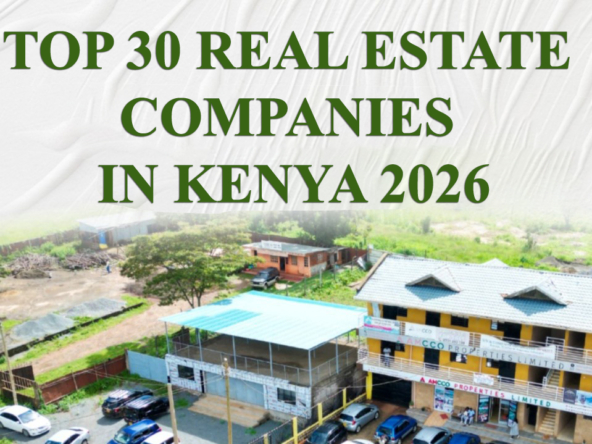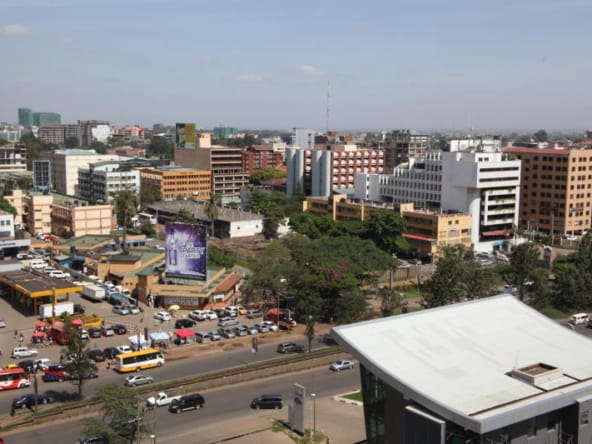The Investment Thesis – Why Nairobi, Why Now?
A Bridge to Home and a Pathway to Wealth
For the Kenyan diaspora, an investment in real estate is rarely a purely financial calculation. It represents a tangible connection to home, a long-term strategy for wealth creation, and a legacy for future generations. It is a milestone that intertwines economic ambition with deep-seated cultural and emotional fulfillment. For years, diaspora remittances have played a pivotal role in Kenya’s economy, and a significant portion of these funds is now being strategically channeled into long-term assets, with real estate emerging as the preeminent choice.
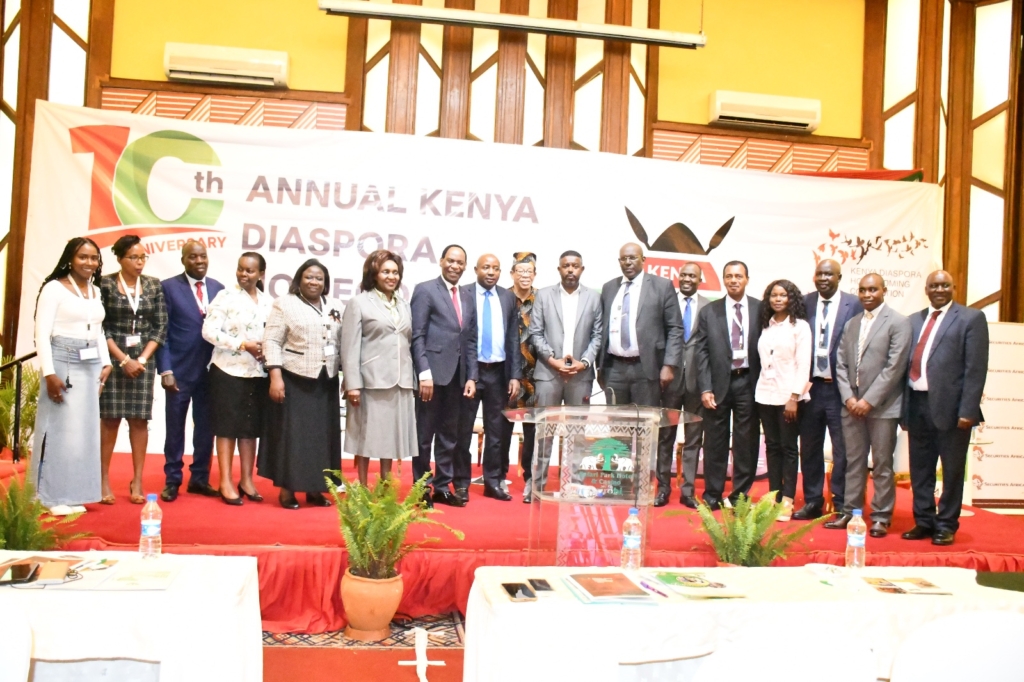
However, the physical distance between the investor and the asset introduces unique complexities and risks. This report serves as a comprehensive, trusted guide for navigating this journey. It provides an analytical framework for understanding the market, a practical playbook for secure acquisition, and a strategic blueprint for maximizing long-term returns. By demystifying the process and highlighting the pathways to a secure investment, this guide aims to empower diaspora investors to confidently build their future in Kenya’s dynamic property market.
Nairobi – A Regional Hub of Growth and Stability
Nairobi’s real estate market is not built on speculation but on a foundation of robust economic and demographic fundamentals. The city’s standing as a regional financial and commercial center for East Africa makes it a magnet for multinational corporations, non-governmental organizations, and a skilled workforce. This corporate presence fuels a consistent demand for high-quality residential accommodation, particularly from the expatriate community and senior local executives.
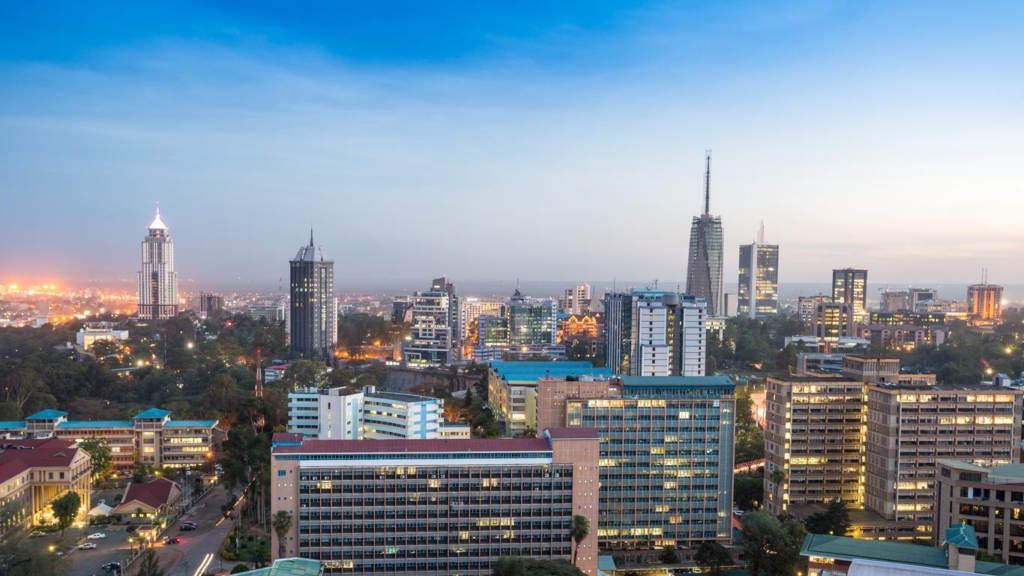
This demand is further amplified by powerful demographic trends. Nairobi is experiencing rapid population growth, coupled with the steady expansion of a discerning middle class with increasing disposable income. This combination of a growing population and rising affluence creates a sustainable, long-term driver for the housing market. The demand for modern, secure, and well-located apartments is therefore not a fleeting trend but a direct consequence of the city’s core economic growth trajectory. An investment in Nairobi’s luxury property segment is, by extension, an investment in the city’s fundamental economic health, offering a degree of resilience against market volatility that is absent in more speculative ventures.
Spotlight on Parklands – The Epicenter of Modern Urban Living
While Nairobi presents a compelling city-wide investment case, the principle of “location, location, location” remains paramount. Certain neighborhoods offer a superior combination of factors that create a protective buffer around an investment’s value. Parklands stands out as a prime example of such a location.
Strategically positioned in close proximity to Nairobi’s central business district (CBD) and the commercial hub of Westlands, Parklands offers unparalleled convenience for professionals. The area is supported by excellent infrastructure, including major arterial roads and transport links that ensure connectivity and accessibility. Beyond its strategic location, Parklands has evolved into a vibrant, culturally diverse community, boasting a high concentration of lifestyle amenities. Access to premier international schools, advanced healthcare facilities, modern shopping malls, and a wide array of dining and entertainment options makes it a highly desirable place to live for families, professionals, and expatriates alike.
These attributes are not easily replicated elsewhere in the city. They are “sticky” features that anchor the neighborhood’s long-term appeal and ensure consistently high rental demand. For an investor, this sustained demand translates directly into lower vacancy rates and more reliable rental income, effectively creating a “defensive moat” around the asset. The premium associated with a Parklands property is therefore not merely for prestige; it is a calculated investment in reduced risk and long-term value preservation.
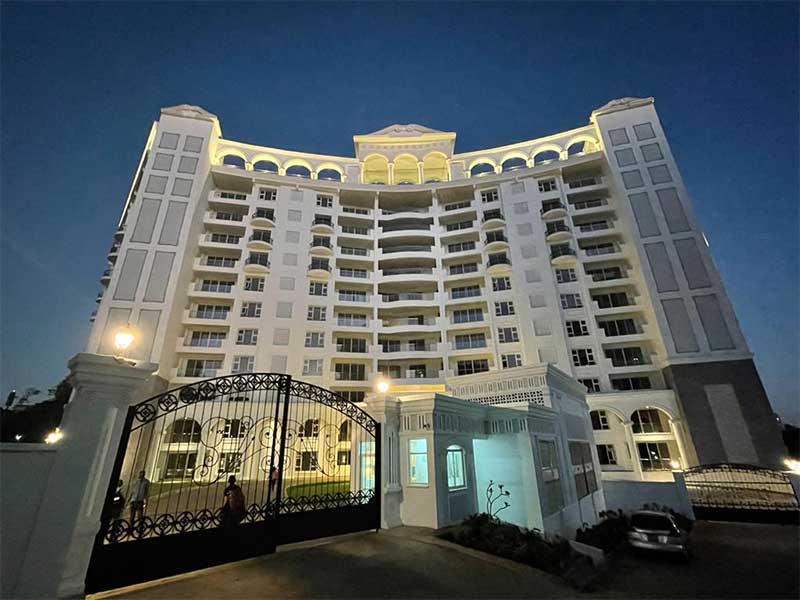
The Luxury Apartment Advantage for the Diaspora Investor
For an investor residing overseas, the specific type of property is as crucial as its location. Luxury apartments have emerged as the ideal asset class for the diaspora, primarily because their characteristics directly mitigate the challenges of remote ownership.
- Low Maintenance and Professional Management: Unlike standalone houses that require constant and direct oversight, modern apartment complexes are designed for ease of management. Communal maintenance, security, and landscaping are handled by a professional management body, relieving the overseas owner of significant logistical burdens.
- Enhanced Security and Prestige: Gated communities with 24/7 security, controlled access, and modern surveillance systems provide essential peace of mind for an owner who cannot be physically present. These features, combined with contemporary architecture and premium finishes, also offer a sense of prestige and status, which is a key consideration for many buyers.
- Superior Rental Income Potential: The confluence of prime locations and high-end amenities attracts a premium tenant pool, including expatriates, corporate clients, and high-income professionals. This demographic is willing to pay higher rents for quality and convenience, leading to strong and consistent rental yields for the investor.
- Resilient Capital Appreciation: Nairobi’s luxury apartment market has demonstrated a consistent track record of resilience and long-term capital gains. The persistent demand for premium housing in prime locations underpins future value appreciation, making it a sound long-term investment.
- The Diaspora Financial Advantage: For many in the diaspora, earning in stronger foreign currencies provides a significant financial advantage. Favorable exchange rates can make premium properties in Nairobi comparatively more affordable, allowing investors to acquire high-value assets without overextending themselves financially.
These factors combine to make the luxury apartment a “lock-and-leave” asset. It functions simultaneously as a high-yield, self-sustaining financial instrument and a convenient, secure, and high-quality personal base for the owner during visits to Kenya. This dual-use capability significantly enhances its overall value proposition for the diaspora investor.
The Investor’s Playbook – A Framework for Secure and Successful Acquisition
Financial Strategy and Preparation
A successful property acquisition begins with a robust and realistic financial strategy. Navigating the financing landscape and accurately budgeting for the total cost of ownership are critical first steps for any prospective buyer, especially those operating from abroad.
Financing Routes
Several pathways are available to finance an apartment purchase in Nairobi :
- Bank Mortgages: Traditional mortgages from Kenyan banks remain a primary option. Lenders assess an applicant’s income, credit history, and the property’s valuation to determine eligibility. Loan-to-Value (LTV) ratios, interest rates, and terms vary significantly between institutions, making it essential to compare offers from multiple banks.
- Diaspora Mortgage Products: Recognizing the immense potential of the diaspora market, several Kenyan banks have developed mortgage products specifically tailored to their needs. These often feature more flexible documentation requirements, accept foreign-based income as proof of repayment capacity, and may offer longer repayment tenures.
- Developer Payment Plans: Particularly for off-plan projects, developers frequently offer structured payment plans. These typically involve an initial deposit followed by installments aligned with specific construction milestones (e.g., foundation, roofing, completion). This route can reduce the immediate need for a large lump sum of capital and aligns payments with project progress.
- Bridging Finance and Personal Loans: While available, these options should be approached with caution. Bridging loans or personal loans can be used to cover deposits or other short-term costs but generally come with higher interest rates and are best used as a temporary, strategic solution rather than a primary financing method.
Budgeting for the Total Cost of Acquisition
A common error for investors is to focus solely on the purchase price while underestimating the associated transactional and recurring costs. A comprehensive budget is essential for financial planning and avoiding unwelcome surprises.
| Cost Item | Description | Estimated Cost Range | Key Consideration for Diaspora Investors |
| Purchase Price Deposit | The initial down payment required by the lender or developer. | 10% – 30% of property value | Confirm the exact percentage required for diaspora-specific products, as it may differ from resident loans. |
| Stamp Duty | A government tax levied on the transfer of property. | Varies by property value and location | Rates can differ for residents vs. non-residents. Legal counsel is required to confirm the exact amount applicable. |
| Legal Fees (Conveyancing) | Fees paid to the lawyer for handling the legal aspects of the property transfer, including due diligence and contract review. | 1% – 2% of property value | Engaging an independent, reputable lawyer is non-negotiable for protecting your interests from abroad. |
| Title Search Fees | A nominal fee paid to the Lands Registry to verify the legal ownership and status of the property title. | Fixed fee | This is a critical step in due diligence to prevent fraud and should be conducted by your lawyer. |
| Valuation Fees | A fee paid to a professional valuer to assess the market value of the property, typically required by mortgage lenders. | ~0.25% of property value | The lender usually has a panel of approved valuers from which to choose. |
| Mortgage Arrangement Fees | One-time fees charged by the bank for processing and setting up the mortgage facility. | 1% – 2% of the loan amount | Compare these fees across different lenders as they contribute to the total cost of borrowing. |
| Service Charges | Recurring fees paid for the maintenance of common areas, security, utilities, and amenities in an apartment complex. | Varies by development | Obtain a clear schedule of service charges before purchase to factor into your long-term holding costs. |
| Sinking Fund Contribution | A contribution to a reserve fund set aside for major, long-term repairs and capital replacements (e.g., roof, elevator). | Varies by development | This fund prevents large, unexpected levies on owners for major repairs and is a sign of good property management. |
Finally, diaspora buyers must actively manage currency risk. Volatility in exchange rates can significantly impact the cost of installments and the overall purchase price when converting from a foreign currency. It is prudent to consult with financial advisors on hedging strategies or to inquire if developers, like some forward-thinking firms, offer payment options in foreign currencies to mitigate this risk.
Due Diligence – The Cornerstone of a Safe Investment
In the Kenyan real estate market, particularly for a diaspora investor operating with the inherent disadvantage of distance, due diligence is not merely a procedural step; it is the fundamental safeguard of the entire investment. The market has unfortunately seen cases of fraudulent schemes, stalled projects, and dishonest sellers, making a rigorous verification process essential.
The analysis of common investment pitfalls reveals a crucial truth: the most critical decision an investor makes is not what to buy, but who to buy from. The integrity, track record, and transparency of the developer are the primary determinants of a successful and secure investment. A great property in a prime location can become a financial and legal nightmare if handled by an unreliable developer. Conversely, a trustworthy developer can ensure a seamless and secure process, even for a complex off-plan purchase. Therefore, an investor’s due diligence should be overwhelmingly focused on vetting the developer, who acts as the custodian of the investment until completion. This reframes the transaction from a simple purchase to the formation of an investment partnership.
A robust due diligence framework should include:
- Developer Vetting: Go beyond marketing brochures. Research the developer’s history extensively. Have they completed past projects? Were they delivered on time and to the promised specifications? Seek out verifiable client testimonials and, if possible, visit their completed developments to assess the quality of construction and maintenance. A developer’s track record is the most reliable predictor of their future performance. Firms like Gazebo Homes Ltd., for instance, build their reputation on a portfolio of successfully delivered projects, such as Gazebo Apartments, which serve as tangible proof of their reliability.
- Legal Verification of Ownership: This is the most critical and non-negotiable step. An investor must never commit funds without independently verifying the property’s title. This involves engaging a qualified lawyer to conduct an official search at the Lands Registry to confirm the legal owner and to ensure the title is clean and free from any encumbrances or disputes. This single action is the most effective defense against property fraud.
- Avoidance of Informal Intermediaries: While it may seem convenient to rely on relatives or informal brokers, this approach introduces significant risks of miscommunication, mismanagement of funds, and fraud. It is imperative to work directly with registered real estate agents or, preferably, with the developer’s official sales team. This ensures a clear line of communication and legal accountability.
- Independent Legal Counsel: Never rely on the developer’s lawyer. An investor must engage their own independent advocate to review all legal documents, particularly the sale agreement. The lawyer’s role is to protect the buyer’s interests, clarify ambiguous clauses, and ensure the contract is legally sound and enforceable. The cost of legal representation is a small price to pay for the security it provides.
Demystifying the Off-Plan Purchase
Buying an apartment off-plan before construction is complete is a common practice in Nairobi’s market. It offers compelling advantages, such as access to early-bird pricing, more flexible payment plans, and the ability to select a preferred unit with a desirable view or layout. However, this model also carries inherent risks that must be carefully managed.
When an investor buys off-plan, they are not purchasing a physical asset that they can see and touch. They are investing in a developer’s promise to deliver a specific product at a future date. During the construction period, the only tangible asset the buyer holds is the legal agreement. Consequently, the strength of this investment is determined not by the glossy architectural renderings, but by the robustness of the contract’s protective clauses.
A diligent investor and their legal counsel should focus intensely on the “what if” scenarios within the contract. The agreement’s true value is revealed in how well it protects the buyer when things go wrong. Key areas for scrutiny include :
- Clear Timelines and Milestones: The contract must explicitly state the projected start and completion dates, along with key construction milestones. Ambiguity in timelines can lead to indefinite delays with little recourse for the buyer.
- Detailed Specifications: All finishes, fittings, fixtures, and appliances should be specified in writing. Vague descriptions like “high-quality finishes” are insufficient and can lead to disputes at handover when the delivered product does not meet expectations.
- Remedies for Delay or Non-Delivery: This is the most critical section. The contract must clearly outline the remedies available to the buyer in the event of unjustified delays or a complete failure to deliver. These may include the right to a full refund, penalty payments from the developer (interest on delayed handovers), or other forms of compensation.
- Defects Liability Period: A standard contract should include a defects liability period (typically 6-12 months after handover) during which the developer is obligated to rectify any construction defects identified by the owner. A formal snagging process at handover is essential to document these issues.
- Title and Approvals: The buyer’s lawyer must verify that the developer holds a clear and transferable title to the land and has obtained all necessary planning and construction approvals from the relevant authorities before any funds are committed.
To further mitigate risk, investors should favor developers who demonstrate a commitment to transparency. This includes providing regular and verifiable construction updates through photos, videos, or third-party reports. Reputable developers like Gazebo Homes often provide systematic progress updates to keep buyers informed and confident in the project’s advancement. Furthermore, inquiring whether a developer uses an escrow account for client funds can provide an additional layer of financial security, ensuring that payments are tied to construction progress.
Maximizing Asset Value and Long-Term Returns
Designing for Demand – The Amenities That Attract and Retain Premium Tenants
In Nairobi’s increasingly sophisticated rental market, tenants’ expectations have evolved beyond basic shelter. They seek a lifestyle of convenience, security, and comfort. For a landlord, the amenities offered by a development are no longer optional luxuries; they are critical tools for attracting and retaining high-quality tenants, justifying premium rents, and minimizing costly vacancy periods.
The return on investment for a well-chosen amenity is not measured in its capital cost, but in the consistency of occupancy it helps achieve. A property that remains occupied by a reliable tenant generates significantly more income over time than a slightly cheaper one that suffers from frequent vacancies. Analysis of the Nairobi market reveals a clear hierarchy of valued amenities :
- The Non-Negotiables:
- Reliable Power Backup: Frequent power outages are a reality of urban life in Nairobi. A development with a robust backup system (a generator, inverter system, or solar installation) is not just desirable; it is often a prerequisite for tenants who work from home or rely on consistent electricity for daily life.
- High-Speed Internet Connectivity: With the global rise of remote and hybrid work, fast and dependable broadband is non-negotiable. Developments that are pre-wired for fibre optic internet or offer managed Wi-Fi services have a distinct advantage in attracting professionals.
- Secure Parking and Access Control: Personal security remains a primary concern for residents. Secure, well-lit parking, combined with comprehensive access control systems such as CCTV, guarded entrances, and electronic gates, provides essential peace of mind and is a major selling point.
- Lifestyle Enhancers:
- Communal Facilities: Shared amenities like a well-equipped gym, a swimming pool, or a resident’s lounge add significant lifestyle value. They offer convenience and a sense of community, replacing the need for tenants to seek external memberships.
- Green Spaces: Even modest green areas, such as a courtyard, rooftop garden, or landscaped grounds, enhance the living environment, promote well-being, and provide valuable leisure space for residents.
- In-Unit Essentials:
- Modern Kitchens and Laundry: Contemporary kitchens with quality finishes, efficient layouts, and provisions for in-unit laundry appliances are highly valued and can significantly increase a property’s marketability.
Developers who understand these priorities, such as Gazebo Homes Ltd., design their projects to align with market demand. By integrating practical, tenant-centric features, they create properties that not only attract long-term tenants but also support consistent rental yields and enhance the overall asset value for investors.
Future-Proofing Your Investment – The Growing Importance of Sustainability
Sustainability in residential development is rapidly transitioning from a niche preference to a mainstream requirement. For investors, green features offer a compelling dual benefit: they align with global trends in environmental responsibility while delivering tangible financial advantages that future-proof the asset.
In the context of Nairobi, where pressure on resources like water and electricity is a growing concern, sustainability is not an abstract concept but a practical solution to everyday challenges. This transforms a “sustainable” apartment into a more reliable, resilient, and cost-predictable asset. For an investor, this translates directly into lower operational costs and a more attractive proposition for savvy tenants.
Key sustainable features that add long-term value include :
- Solar Power and Hybrid Energy Systems: Solar photovoltaic (PV) systems, particularly when paired with battery storage and an inverter, significantly reduce reliance on the national grid. This lowers common area electricity costs (reducing service charges) and provides invaluable resilience during power outages, a feature highly prized by tenants.
- Water Conservation: Rainwater harvesting systems for landscaping and greywater recycling for non-potable uses (like flushing toilets) reduce the consumption of municipal water. This not only lowers water bills but also mitigates the impact of water rationing or shortages, ensuring a more consistent supply for residents.
- Passive Design: Intelligent architectural design that maximizes natural light and cross-ventilation reduces the need for artificial lighting and air conditioning. This lowers household energy consumption for tenants and creates a more comfortable and healthier living environment.
- Energy-Efficient Fittings: The use of LED lighting and the provision of energy-efficient appliances directly reduce monthly utility bills for residents, making the property more attractive and affordable to run.
An apartment building that incorporates these features is inherently more efficient and resilient. It is better insulated against rising utility costs and infrastructure instability. For a long-term investor, these are not just green credentials; they are strategic advantages that enhance the property’s marketability, reduce its operational expenditure, and contribute to superior value retention in a competitive market.
Ownership from Afar – A Blueprint for Effective Remote Management
For the diaspora landlord, the purchase of the property is only the beginning. The success of the investment hinges on establishing a robust system for effective remote management. Direct, hands-on control is impossible from a distance; therefore, the goal is not to micro-manage but to create a transparent system of accountability built on trusted partners and clear processes. The upfront effort invested in building this system is what ultimately guarantees passive income and peace of mind.
A blueprint for successful remote management includes the following core components:
- Engage a Reputable Property Manager: This is the cornerstone of the entire strategy. A professional property management company acts as the owner’s proxy on the ground. Their responsibilities include tenant sourcing and vetting, rent collection, handling maintenance and repairs, and providing regular financial reporting. Due diligence is critical: seek managers with verified references, transparent fee structures, and clear service level agreements (SLAs).
- Establish a Strong Legal Framework: A legally vetted tenancy agreement is essential. This contract should clearly specify the rent amount, deposit terms, notice periods, and the respective responsibilities of the landlord and tenant for repairs and upkeep. A comprehensive agreement is the first line of defense against disputes. Furthermore, insist on a robust tenant screening process, including credit checks, employment verification, and references from previous landlords, to minimize the risk of defaults and property damage.
- Implement Digital Systems and Tools: Technology is a key enabler of remote management. Set up digital rent collection via bank transfers, mobile money, or online portals to automate payments and improve cash flow reliability. Require the property manager to provide regular (e.g., monthly) reports that include financial summaries, occupancy status, and maintenance logs. Periodic video calls and photo updates can provide visual confirmation of the property’s condition.
- Protect the Asset Legally and Financially:
- Insurance: Ensure the property is covered by adequate building and contents insurance. Consider specific landlord insurance that may cover loss of rent or liability.
- Maintenance Budget: Allocate a portion of the rental income to a dedicated maintenance reserve or sinking fund. This prevents cash flow shocks when unexpected repairs are needed.
- Legal Support: Retain access to a Kenyan lawyer who can provide support in the event of tenancy disputes, contract enforcement, or eviction proceedings.
Finally, leverage the resources available within the development itself. Modern developments such as Gazebo Apartments often have resident management teams or can recommend trusted property management partners, simplifying the process for owners and ensuring a coordinated approach to maintaining the building’s standards.
Conclusion and Resources
Your Future in Nairobi Awaits
Investing in Nairobi’s luxury apartment market presents a powerful opportunity for the Kenyan diaspora to build wealth, secure a future home, and strengthen their connection to Kenya. As this report has demonstrated, the venture is underpinned by solid economic fundamentals and offers significant potential for both rental income and long-term capital appreciation.
The challenges associated with investing from abroad navigating legal complexities, managing risks, and ensuring transparency are real but entirely surmountable. Success is not a matter of chance but a result of a methodical approach grounded in diligent research, strategic financial planning, and, most importantly, the selection of the right partners.
By prioritizing due diligence, budgeting comprehensively, understanding the nuances of the local market, and establishing robust systems for remote management, investors can confidently navigate the process. Developers like Gazebo Homes Ltd. are playing a crucial role in this ecosystem, setting new benchmarks for transparency, reliability, and quality. They function not merely as builders of properties, but as essential partners in the diaspora’s journey toward secure and successful property ownership. With the right knowledge and a trusted team, your future in Nairobi awaits.
Key Takeaways
- Prioritize the Partner, Not Just the Property: Your most important investment decision is choosing a reputable developer with a proven track record of transparency and on-time delivery. Their credibility is the primary safeguard for your capital.
- Budget Beyond the Price Tag: A comprehensive financial plan is essential. Account for an additional percentage of the property’s value to cover crucial closing costs, including stamp duty, legal fees, valuation, and mortgage arrangement fees.
- Systematize Remote Management: Do not leave post-purchase management to chance. From day one, engage a professional property manager, use legally binding tenancy agreements, and set up digital systems for rent collection and reporting to ensure a passive and profitable investment.
- Invest in Future-Proof Features: Modern amenities (like power backup and high-speed internet) and sustainable designs (like solar power and water harvesting) are not sunk costs. They are strategic investments that directly translate into higher rental yields, lower vacancy rates, and superior long-term asset value.
- Legal Counsel is Non-Negotiable: Always engage an independent lawyer to conduct title searches and review all contracts. This is the most effective way to protect yourself from fraud and ensure your legal rights are protected throughout the transaction.
Comprehensive FAQ Section
Financing & Costs
- Can non-residents get mortgages in Kenya? Yes, several Kenyan banks offer diaspora-specific mortgage products. The requirements, such as deposit amounts and documentation, may differ from those for resident loans.
- How much deposit do banks usually require? Deposits typically range from 10% to 30% of the property value, depending on the specific lender, the mortgage product, and the applicant’s profile.
- What are service charges? Service charges are recurring fees paid by apartment owners to cover the costs of maintaining communal areas and services, such as security, cleaning, landscaping, and utilities for common spaces. They are usually paid monthly or quarterly.
- Should I budget for a sinking fund? Yes. A sinking fund is a reserve fund collected to cover the cost of major, long-term repairs or replacements (e.g., repainting the building, overhauling an elevator). It is a crucial component of responsible property management that prevents owners from facing large, unexpected levies.
The Purchase Process
- Is buying off-plan risky? It carries specific risks, such as construction delays or discrepancies in quality. However, these risks can be significantly mitigated by choosing a reputable developer with a proven track record and ensuring your purchase contract contains strong buyer protections reviewed by an independent lawyer.
- What should an off-plan contract include? A robust off-plan contract must clearly define the completion timelines, a detailed payment schedule, precise specifications for all finishes and fittings, assurances regarding the property title, and explicit remedies for delays or failure to deliver.
- Should I hire a lawyer for property purchases? Absolutely. An independent lawyer is essential to verify contracts, conduct title searches to confirm ownership, and ensure the entire process is legally sound and protects your interests.
- What happens if a developer delays handover? Your recourse is defined in the sale agreement. The contract should specify remedies, which might include penalty payments from the developer, the right to a refund, or revised delivery terms.
Investment & Location
- Why is Parklands considered a prime location? Parklands offers a strategic combination of proximity to Nairobi’s CBD and major business hubs, excellent infrastructure, and a high concentration of lifestyle amenities, including international schools, hospitals, and shopping centers. This drives consistently high rental demand.
- Are luxury apartments in Nairobi a good long-term investment? Yes. The demand for high-quality housing in prime locations is driven by strong economic and demographic fundamentals, including a growing middle class and a significant expatriate community. This supports both consistent rental income and long-term property value appreciation.
- Why do diaspora investors prefer luxury apartments over other properties? They are generally easier to manage from abroad, offer better security, provide modern lifestyle amenities that attract premium tenants, and generate higher rental returns compared to many other property types.
Property Management
- Can I manage my Nairobi rental property from overseas? Yes, it is highly feasible with the right systems in place. The key is to engage a competent and trustworthy property management company and to utilize digital tools for rent collection and communication.
- How do I find a reliable property manager? Seek recommendations from trusted sources, check online reviews and references, interview potential candidates, and carefully review their service agreements and fee structures before signing a contract.
- Do developments offer property management support? Many modern apartment developments either provide in-house property management services or can recommend pre-vetted, reliable management companies to support property owners.
Developer & Trust
- How can I check if a developer is trustworthy? Conduct thorough due diligence. Review their portfolio of completed projects, visit the sites if possible, seek out testimonials from past buyers, and confirm their registration and good standing with relevant Kenyan authorities. A proven track record of delivery is the best indicator of trust.
- Why is transparency important in diaspora real estate investments? Because investors are operating from a distance, they rely completely on the accuracy and openness of the information provided by the developer. Transparency in documentation, costs, and project progress is essential for building trust and protecting the investor from fraud and misinformation.
- How does a developer like Gazebo Homes Ltd. promote transparency? By providing clear legal documentation, maintaining open lines of communication, offering regular and verifiable project updates, and building a reputation based on a proven track record of successfully delivered projects.



